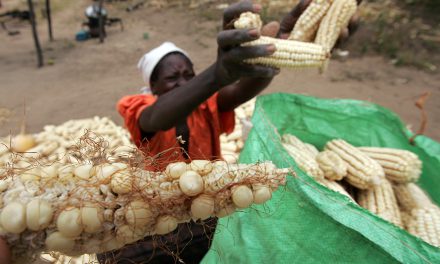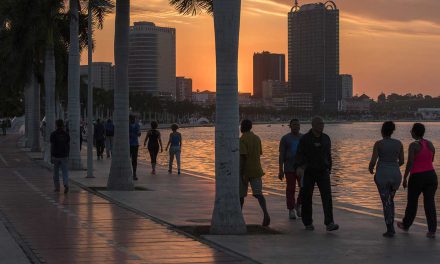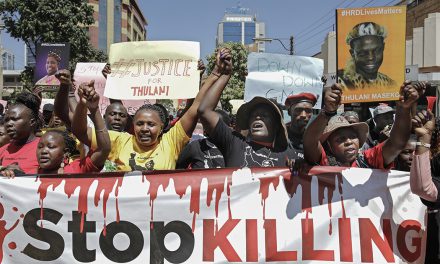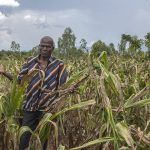The by-now notorious rubbish tips and contaminated waterways that plague the townships of Emfuleni in southern Gauteng—thanks to broken-down wastewater infrastructure and neglectful refuse removal—are what is visible to the naked eye.
The invisible impact of it on residents’ health is a more serious, and potentially devastating long-term problem.
In Boipatong, near Vanderbijilpark, Phuthulla Primary School has struggled for at least eight years to manage the broken, overflowing sewage pipes that overflow into the schoolyard when it rains, creating lakes around the classroom buildings and turning all the outdoor play areas into a health hazard.
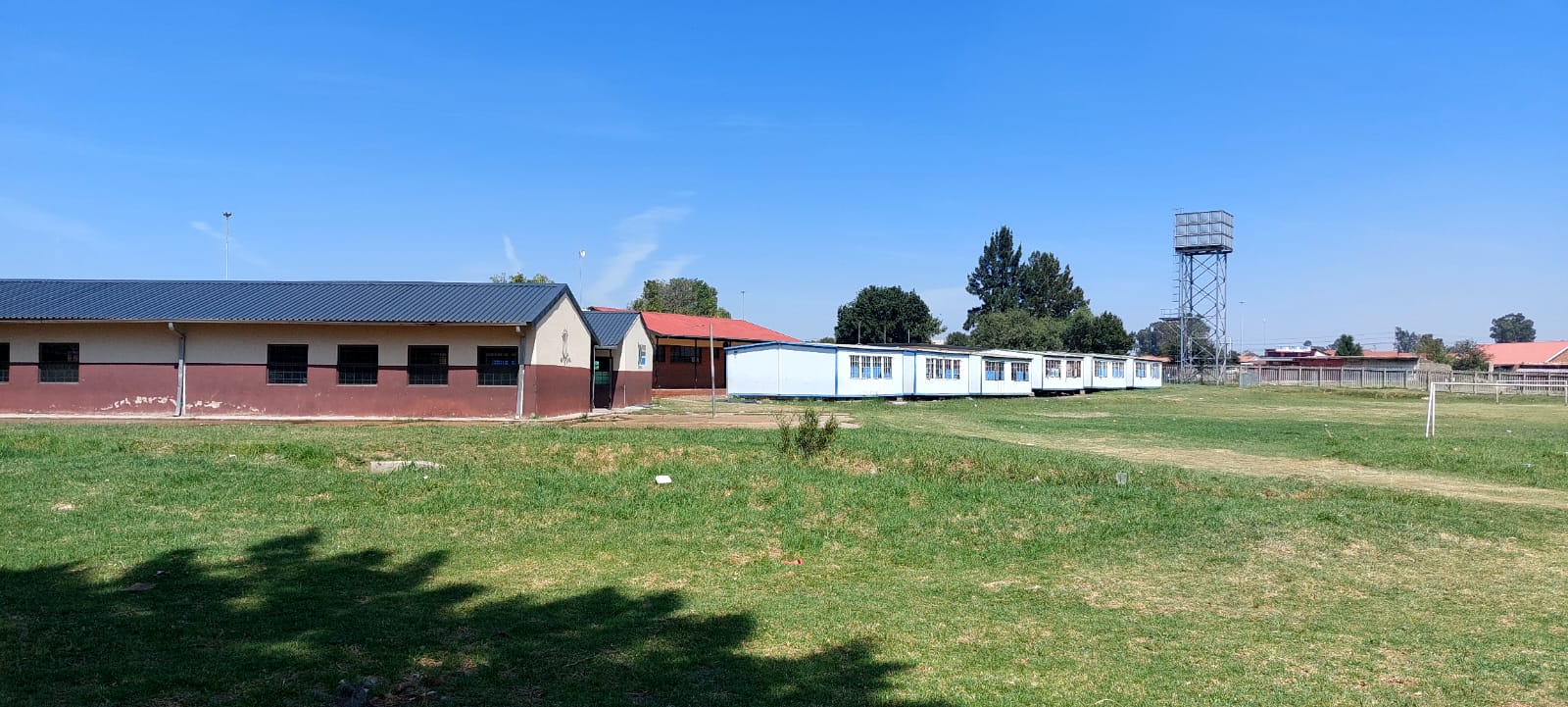
Phuthulla primary school, Boipatong. Pic by Helen Grange
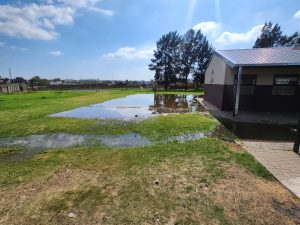
When it rains, the sewage spill creates lakes around the classroom blocks of Phuthulla primary school, Boipatong. Pic supplied.
A senior office-bearer at the school(who wished to remain unnamed) says the children at the school often suffer from skin rashes and stomach aches from food poisoning. “Late last year we had to send all of them home. A lot of parents have taken their kids out of the school as a result,” he told GGA’s research team when we visited last month.
The same complaints have echoed for years throughout Emfuleni, where industrial (mostly steel producers), coal mining, commercial, agricultural and residential land use activities are all in close proximity to one another, resulting in alarming levels of air and water pollution.
The high incidence of asthma in the townships of Evaton, Sebokeng, Sharpeville, Boipatong, Bophelong and Tshepiso – all within this municipality – is well documented, with waterborne diseases an added burden due to the frequent contamination of the municipality’s water sources.
In a 2022 University of Johannesburg-published thesis titled ‘The impacts of water quality on the residential areas of Emfuleni Local Municipality: a case study of Rietspruit river catchment’ (close to Bophelong), by Jabulile Sindane, most of the 260 respondents in the study complained of “skin rashes and diarrhoea developed by children who make contact with the untreated sewage when playing on the streets”.
Sewage contaminated water contains E. coli and salmonella bacteria, the common causes of diarrhoea and stomach cramps, symptoms that can be particularly hazardous for children and the elderly, who may experience dehydration and other complications as a result.
Respondents in Sindane’s study also complained that the odour “worsened some of their health conditions such as asthma”, an issue raised during our visit to Phuthulla primary school. “Some of the children are suffering from breathing problems,” said the senior school official.
The air quality in this area is so poor it occasionally hits headlines. On 12 July 2023, Bloomberg’s DataDash cited Vereeniging as having the worst air quality in the world, using data from OpenAQ which measured 46.13 micrograms per cubic metres (μg/m3) of fine particulate matter measuring 2.5 μm in diameter or less.
Fine particulates of 2.5 μm or less can get deep into the lungs and even the bloodstream. Extensive global research has found that over the long term, exposure to air pollution can lead to heart disease, lung cancer, and respiratory diseases such as asthma and emphysema.
When it comes to exposure to water pollution—through drinking, bathing or water-based cooking—the harmful substances in contaminated water, including heavy metals, chemicals and bacteria, can lead to cancer, neurological disorders, reproductive issues, and developmental abnormalities.
The imperative to tackle air and water pollution in Emfuleni, therefore, cannot be overstated.
Last July, the Gauteng High Court ordered several government ministers and the Gauteng Premier to stop the sewage pollution of the Vaal River and its tributaries, finding that “the discharge of raw or inadequately treated sewage from Emfuleni’s municipal wastewater care and management system into the Rietspruit River/Klip River/Vaal River and the Vaal River Catchment Areas was in contravention of the National Environmental Management Act (Nema) and National Water Act, “and must be prevented”.
Yet little has been done. On 26 February 2024, nine ward councillors in the area wrote a letter to the Gauteng premier, Panyaza Lesufi, pointing out that household refuse removal had “finally broken down completely with some suburbs reportedly having been last serviced more than eight weeks ago”.
“The reason given by the municipality to councillors and residents alike … is the unavailability of working contractors needed to facilitate the refuse collections. This in spite of the fact that Gauteng Province gave the municipality nine new compactors as recently as the 2021/2022 financial year,” the letter stated.
Only a week ago (1 April), the municipality warned residents that water in some parts of the Vaal area, including Sebokeng Zone 7, Palm Springs, Beverley Hills, Lakeside and Evaton, had been contaminated as a result of a collapsed sewer pipeline. Water tankers were deployed while technicians fixed the problem.
“You’d know that some of our infrastructure is very old and sometimes the conditions become poor and it breaks and gets dilapidated, said ELM’s chief director Madoda Besani. “So what happens is that because of this you’d find sewage that’s leaking in various parts and ponds around the water network, and if it’s broken, the sewage finds its way inside the network.”
This piecemeal, crisis management approach continues to define Emfuleni municipality’s response to the situation, caused in no small part by its overwhelming debt – at close to R9 billion owed to Eskom and Rand Water for services, according to the council’s latest 2022/23 audit report.
“The legacy debt to Eskom and Rand Water currently makes the Emfuleni municipality unworkable on its own,” says Dennis Ryder, Member of Parliament in the National Council of Provinces.
“The only way to redress this disaster is good governance, appropriately funded, with a seven to 10 year consistent Executive focussed on fixing it with all three spheres of government on board.”
Towards its stabilisation, Good Governance Africa hopes to make Emfuleni a core focus of its work in South Africa for the next few years, given this municipality’s clear governance deficit as reflected in GGA’s recently released Governance Performance Index.
The immediate and long-term health and environmental impacts of pollution aside, consistently ignoring urgent societal needs leads to democratic backsliding, warns GGA’s senior data analyst Pranish Desai.
“If problems such as those visible at Phuthulla Primary School are not effectively addressed with sufficient haste, then apathy and disillusionment can consolidate into something far more menacing: the destabilisation of our hard-won democracy and, in its place, a ripe environment for unrest,” he says.
This article first appeared in Mail & Guardian on 12 April 2024.
Helen Grange is a seasoned journalist and editor, with a career spanning over 30 years writing and editing for newspapers and magazines in South Africa. Her work appears primarily on Independent Online (IOL), as well as The Citizen and Business Day newspapers, focussing on business trends, women’s empowerment, entrepreneurship and travel. Magazines she has written for include Noseweek, Acumen, Forbes Africa, Wits Business Journal and UJ Alumni magazine. Among NGOs she has written or edited for are Gender Links and INMED, a global humanitarian development organisation.




